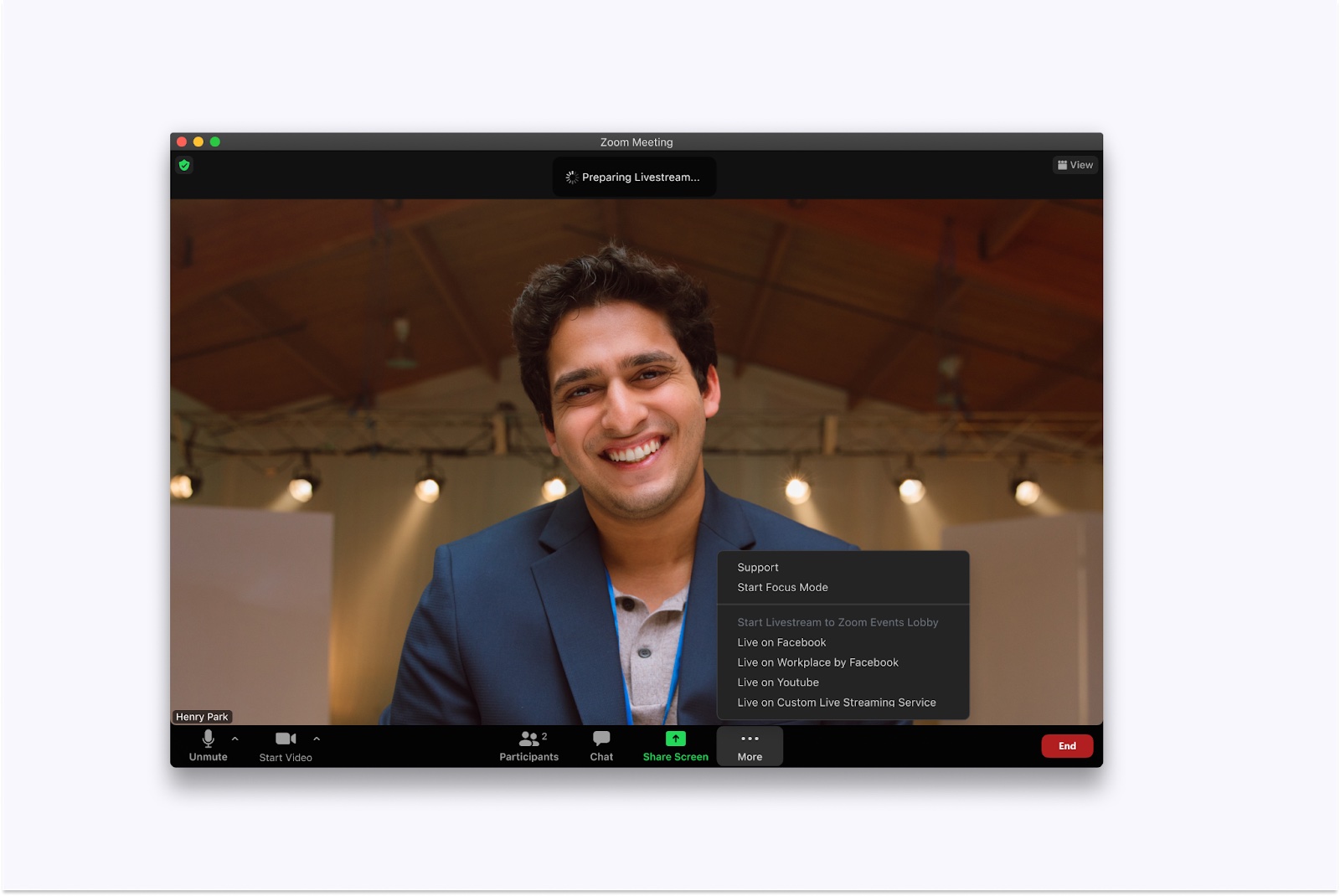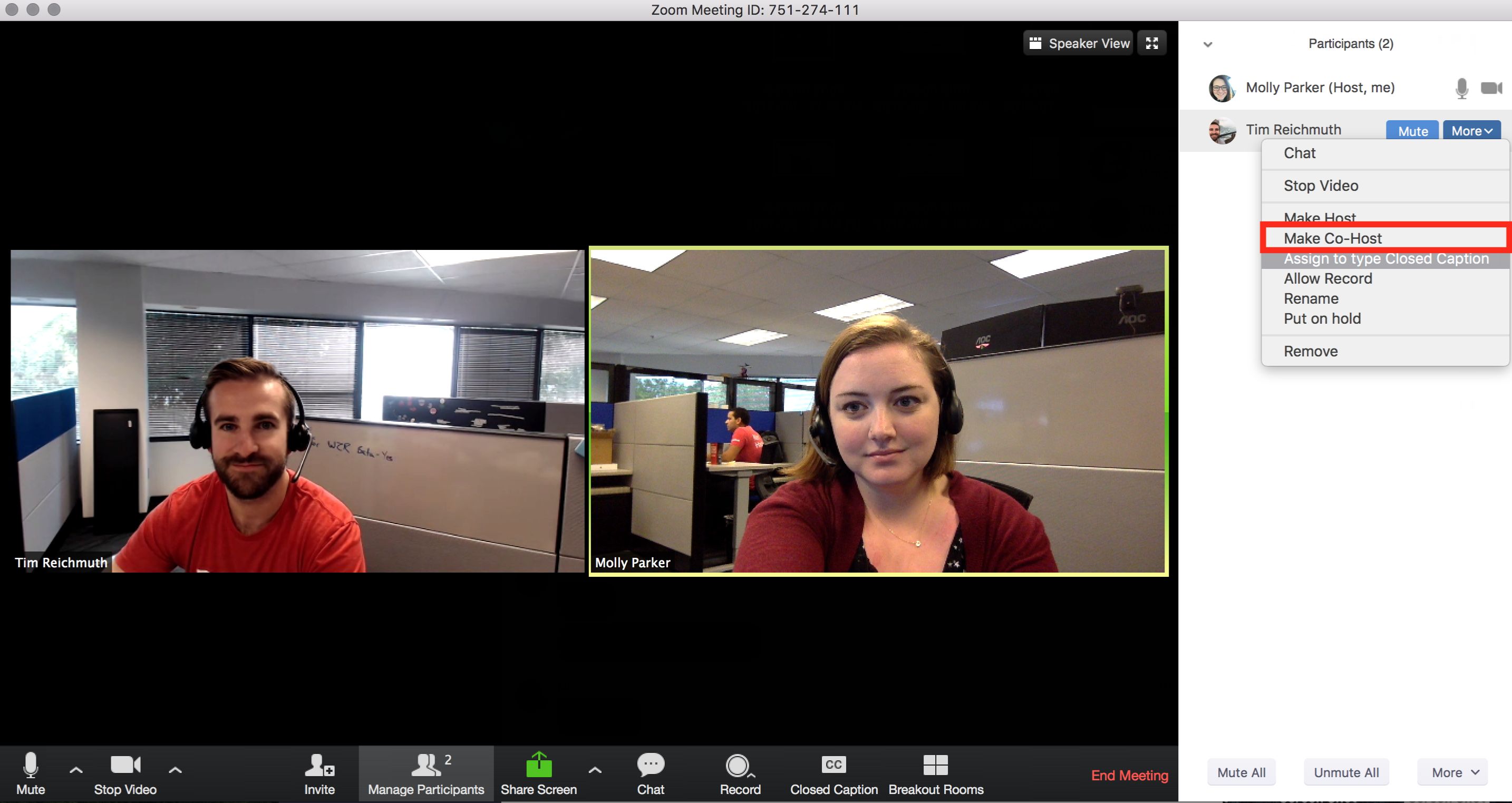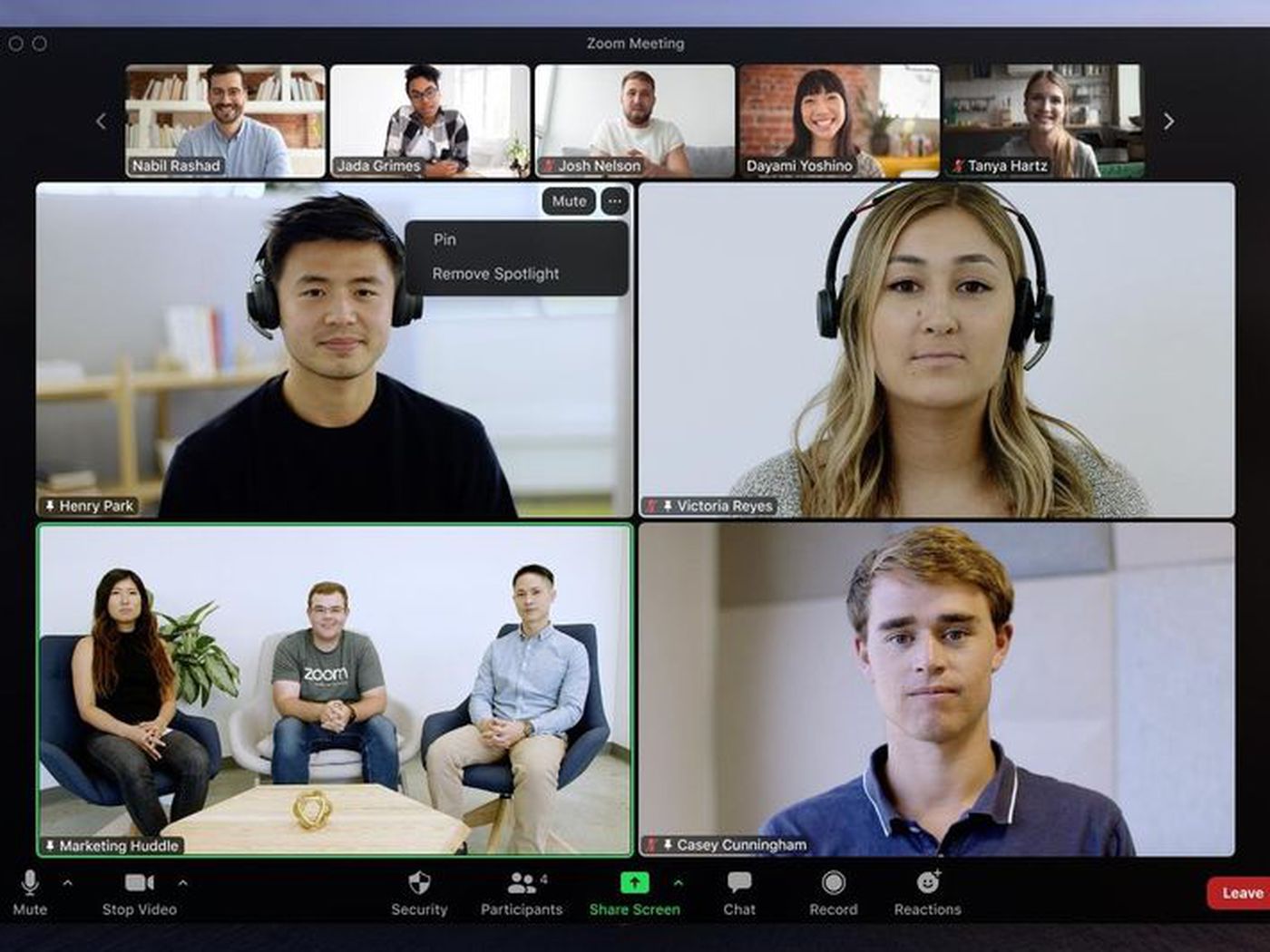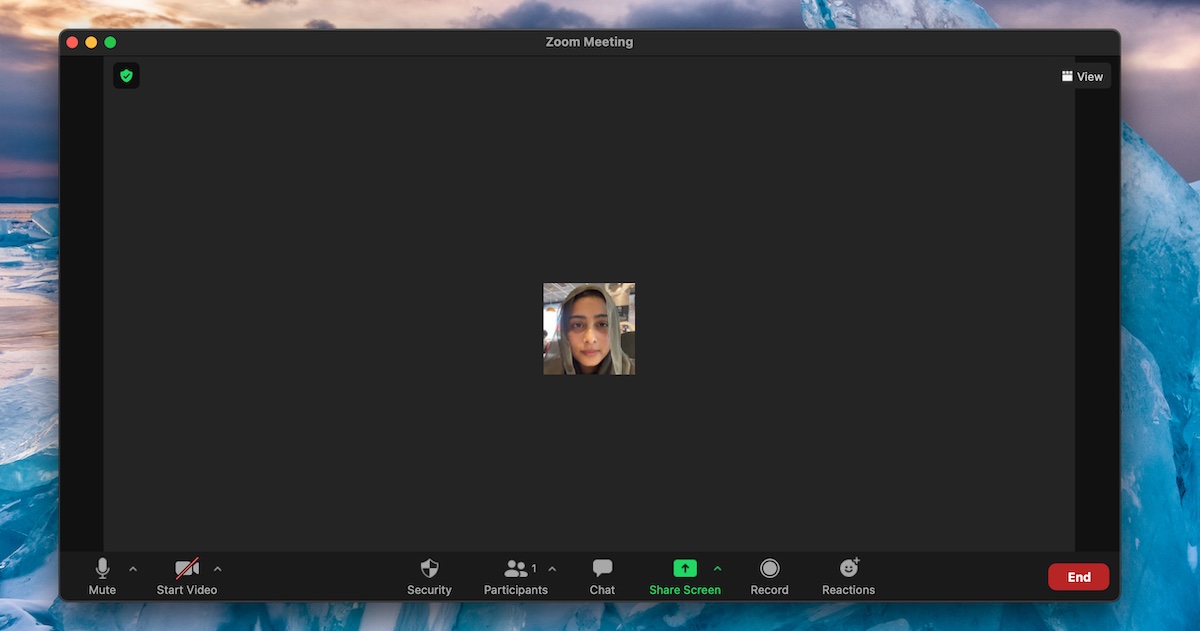Introduction
Welcome to the world of Zoom, a popular video conferencing platform that has become an essential tool for remote work, online education, and virtual gatherings. As a participant in a Zoom meeting, you might have come across the term “host key” and wondered what it is and where to find it. In this article, we will explore the concept of the host key in Zoom and guide you on where to locate it.
Zoom, with its user-friendly interface and robust features, allows users to host meetings and control various aspects of the meeting settings. The host key is a unique six-digit code that provides additional security and control to the meeting host. It acts as a virtual key that grants the host special privileges, ensuring that only authorized individuals can assume the role of the host.
Understanding the purpose and functionality of the host key is essential for hosts who want to harness the full potential of Zoom. By utilizing this key, hosts can manage various meeting settings and ensure a secure and productive session for all participants.
What is a host key in Zoom?
In the world of Zoom, the host key is a crucial element that sets the host apart from other participants. It acts as a virtual key, granting the host exclusive access to certain features and controls within a Zoom meeting. Essentially, the host key serves as a passcode that validates the host’s authority and ensures that only authorized individuals can assume the role of the host.
The host key is a six-digit code that is unique to each meeting. It acts as an additional layer of security, preventing unauthorized users from taking control of a meeting and potentially disrupting the proceedings. This added level of protection helps to maintain the integrity and privacy of sensitive discussions and ensures that the meeting remains secure and productive.
With the host key, the host gains some special privileges and responsibilities. These include the ability to start the meeting, manage participants, control screen sharing, and access various meeting settings. The host key also allows the host to reclaim control if, for any reason, they lose it during the course of the meeting.
It’s important to note that the host key should be treated with utmost confidentiality. As it grants significant control over the meeting, sharing or compromising the host key can result in unauthorized individuals gaining access to the host’s privileges. Therefore, it is recommended to keep the host key private and only share it with trusted individuals who need to assume the role of the host in exceptional circumstances.
Overall, the host key in Zoom plays a critical role in ensuring the smooth functioning and security of meetings. It empowers the host with control over various settings and safeguards the privacy and integrity of the discussions. Now that we have a clear understanding of what the host key is, let us explore where to find it in different Zoom applications.
Purpose of the host key
The host key in Zoom serves several important purposes that contribute to the smooth operation and security of meetings. Let’s explore the key objectives of the host key:
1. Meeting Control: The main purpose of the host key is to grant the host complete control over the meeting. This control includes starting and ending the meeting, managing participants, controlling screen sharing, and managing various meeting settings. The host key ensures that only the designated host has the authority to exercise these controls, ultimately leading to a well-organized and productive meeting.
2. Meeting Security: Security is of paramount importance in any online meeting, especially when sensitive information is being discussed. The host key acts as a virtual key that authenticates the host’s authority and ensures that only authorized individuals can assume the host role. By keeping the host key private, the meeting remains secure and protected from unauthorized access and disruptions.
3. Preventing Unauthorized Assumption of Host Role: The host key plays a crucial role in preventing unauthorized individuals from assuming the host role. Since the host has considerable control over the meeting, sharing or compromising the host key can lead to unauthorized access, resulting in potential disruptions or privacy breaches. By safeguarding the host key, Zoom ensures that only trusted individuals can rightfully act as hosts.
4. Reclaiming Control: In the event that the host loses control of the meeting, perhaps due to technical difficulties or accidental relinquishment, the host key allows them to regain control promptly. By reentering the host key, the rightful host can reclaim their privileges and resume managing the meeting. This feature ensures that any unexpected circumstances are quickly resolved, minimizing disruptions to the meeting flow.
5. Meeting Accountability: The host key also serves as a method of accountability for the host. As the host is entrusted with managing the meeting, the use of a unique host key can help establish a clear digital trail that confirms the host’s identity and actions within the meeting. This accountability feature provides transparency and ensures that the host takes responsibility for their actions during the session.
Through these purposes, the host key in Zoom plays a vital role in maintaining meeting control, security, and accountability. By understanding the significance of the host key, hosts can effectively manage their Zoom meetings and ensure a productive and secure environment for all participants.
Where to Find the Host Key in the Zoom Desktop App?
The Zoom desktop app provides an easy and intuitive user interface for hosts to locate and manage the host key. Here’s a step-by-step guide on where to find the host key in the Zoom desktop app:
- Open the Zoom desktop app on your computer.
- Sign in to your Zoom account and navigate to the “Meetings” tab.
- Click on the scheduled meeting for which you want to find the host key, or if you want to generate a host key for an instant meeting, click on the “New Meeting” button.
- In the meeting details page, scroll down to the “Meeting ID” section.
- Right below the “Meeting ID,” you will find the “Host Key.” It is a unique six-digit code that represents the host key for that specific meeting.
- Take note of the host key or click on the “Copy” button to copy it to your clipboard.
Once you have located or generated the host key, it is recommended to keep it secure and only share it with trusted individuals who may need to assume the host role. It is crucial to remember that the host key allows control over the meeting, so it should be treated with confidentiality.
By following these steps, you can easily find the host key for your Zoom meetings in the desktop app. Now, let’s explore where to find the host key in the Zoom web portal.
Where to Find the Host Key in the Zoom Web Portal?
If you prefer to access Zoom through the web portal, locating the host key is just as simple. Here’s a step-by-step guide on where to find the host key in the Zoom web portal:
- Open your preferred web browser and visit the Zoom web portal at https://zoom.us.
- Sign in to your Zoom account using your credentials.
- Once logged in, navigate to the “Meetings” tab in the top menu.
- Find the scheduled meeting for which you want to locate the host key or click on the “Schedule a New Meeting” button to create a new meeting.
- In the meeting details page, you will find various settings and options. Look for the “Meeting ID” section.
- Directly beneath the “Meeting ID,” you will find the “Host Key.” It is a unique six-digit code that represents the host key for that particular meeting.
- Note down the host key or click on the “Copy” button to copy it to your clipboard.
Remember to keep the host key private and share it only with trusted individuals who may need to assume the host role. The host key grants control over the meeting settings and is crucial for ensuring the security and integrity of your Zoom meetings.
By following these steps, you can easily locate the host key in the Zoom web portal. Now, let’s explore where to find the host key in the Zoom mobile app.
Where to Find the Host Key in the Zoom Mobile App?
If you prefer to use Zoom on your mobile device, locating the host key is a straightforward process. Here’s a step-by-step guide on where to find the host key in the Zoom mobile app:
- Launch the Zoom mobile app on your smartphone or tablet.
- Sign in to your Zoom account using your credentials.
- Once logged in, you will be taken to the home screen of the app.
- Tap on the “Meetings” tab or navigate to the specific meeting for which you want to find the host key.
- In the meeting details page, scroll down to the “Meeting ID” section.
- Under the “Meeting ID,” you will find the “Host Key.” The host key is a unique six-digit code that represents the host key for that particular meeting.
- Note down the host key or tap on the “Copy” button to copy it to your device’s clipboard.
It is important to keep the host key confidential and only share it with trusted individuals who may need to assume the host role in your Zoom meetings. The host key grants control and authority over various meeting settings and features, ensuring the security and smooth functioning of your sessions.
By following these steps, you can easily locate the host key in the Zoom mobile app. Whether you are using the desktop app, web portal, or mobile app, finding the host key is a seamless process that empowers hosts with control over their Zoom meetings.
Conclusion
As we wrap up our exploration of the host key in Zoom, it’s evident that this unique six-digit code plays a crucial role in meeting control, security, and accountability. The host key empowers meeting hosts with exclusive privileges to manage various aspects of the meeting, ensuring a productive and secure environment for all participants.
By understanding the purpose and functionality of the host key, hosts can confidently navigate the Zoom ecosystem and utilize its features effectively. Whether you are using the Zoom desktop app, web portal, or mobile app, locating the host key is a simple process that grants hosts control over their meetings.
Remember to keep your host key private and only share it with trusted individuals who may need to assume the host role. The host key acts as a virtual key, ensuring that only authorized individuals can access the host’s privileges and maintain the security and integrity of your meetings.
Now that you know where to find the host key in the different Zoom applications, you can confidently host meetings and ensure a smooth and productive experience for all participants. As Zoom continues to be a leading platform for virtual collaboration, harnessing the power of the host key will enable you to take full advantage of its features and maintain the security of your meetings.
So, keep the host key within your reach, wield your control responsibly, and make the most out of your Zoom meetings. Happy hosting!

























